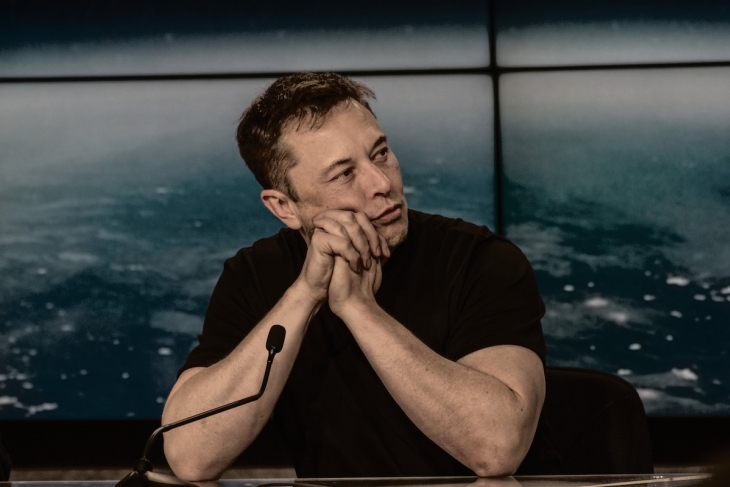Considering that Elon Musk developed the technology to parallel park rockets, designed electric cars that people actually like, held one of the first human trials of neural implants, and on the side, manages one of the most influential social media platforms in the world, I have a lot of time for his schemes. Greatness and eccentricity often pair, after all.
But in education, where Musk has dabbled for years, his ideas would almost certainly explode on lift off were they launched at scale. Last month, Education Week reported that Musk was opening a school for young adults, and believes that school should operate like “a video game.” Normally, yet another entrepreneur opening a school is a small news story, but considering Musk has the ear of President-elect Trump—and many more look to Musk for inspiration—his thought leadership is worthy of our attention. And here, it would be deleterious.
Indeed, Musk’s forays into education are many. He first opened a clandestine school, Ad Astra, at Space X’s headquarters with a simple dictum to its founding principal: Make it great. Hundreds of families at Space X and a few select students from Los Angeles applied for fewer than 40 spots. An article for the Washington Post describes the school as a “secret laboratory school for brilliant kids who love flamethrowers,” with a curriculum geared toward problem solving skills.
In 2020, Musk dissolved the school and the teachers involved spun the concept off into two separate products: Astra Nova and Synthesis. Astra Nova is an unaccredited, online school that offers a variety of courses covering everything from infectious diseases to history to an introduction to stand-up comedy. Synthesis is a series of weekly “games” or simulations first offered at Ad Astra, but now is a subscription software that schools or families can use for enrichment. And Musk plans to soon re-open a variation of his initial Ad Astra school in Texas outside of Space X’s headquarters—the aforementioned school for young adults that Education Week covered.
As supplement offerings, it’s difficult to take issue with these products. But they would be a disaster as the basis for educating a substantial portion of American students.
A school at Space X serves mostly “failure proof kids.” Reared in affluence with educated parents, essentially any educational model could function on the organization's campus. Throw a squirrel and a chatbot in a room with books, and the children of Space X employees would come out well-educated. Children from stable homes have parents that have leisure time to assist with projects or tutor their kids. Children with affluent backgrounds are more likely to grow up in language-rich households, thus naturally developing more complex vocabulary and sentence structures. Similarly, within the cultural mainstream, such children have been normed into society’s basic expectations about decorum, behavior, and speech.
Conversely, if an underprivileged student has to babysit their siblings in the evenings, doesn’t have parents who have time to provide homework help, doesn’t have behavioral accountability at home, or doesn’t come to school with an advanced vocabulary, they need the structure of a traditional school and the explicit instruction of a traditional curriculum.
When it comes to his actual theories, Musk makes a fundamental categorial error. Education is the incorrect domain for innovation. We should no more innovate beyond direct instruction or good curriculum than we should family dinners or reading bedtime stories. Though the foundations of modern schooling may not be self-evident, traditional classrooms are built upon sound principles. For example, factual knowledge, not abstract skills, determine our ability to think critically. We are human and so think and problem solve by nature. These inherent aptitudes grow more skillful with the application of specific content knowledge. A good engineer isn’t good because they’ve honed abstract thinking skills, but because they know much of physics, structural mechanics, and mathematics. Consequently, to develop the “critical thinking” capacities that Ad Astra and other Musk products extol, students need exposure to a sequence of unfamiliar knowledge, what we might call a curriculum.
Similarly, every basic structure in a school has a purpose. Bells ensure swift, efficient, and timely transitions so no time is wasted. Desks in rows keep attention forward and temptations to distraction minimal. Behavioral expectations ensure orderly, safe learning environments where kids can focus on their work. A small school tucked away in Silicon Valley may be able to shed these structures, but they’re absolutely essential to the task of mass educating an entire populace.
Open classrooms, whole-language and balanced literacy, restorative justice, one-to-one computing, chatbots—each one promised to change everything, schools scrambled to implement them, and education consultants made mean profit off of them. But teachers realized each one doesn’t work, and they’ve all fell out of, or are soon to fall out of, fashion. Musk may get humanity to Mars, but his educational efforts will do little to change the trend of our national test scores.




